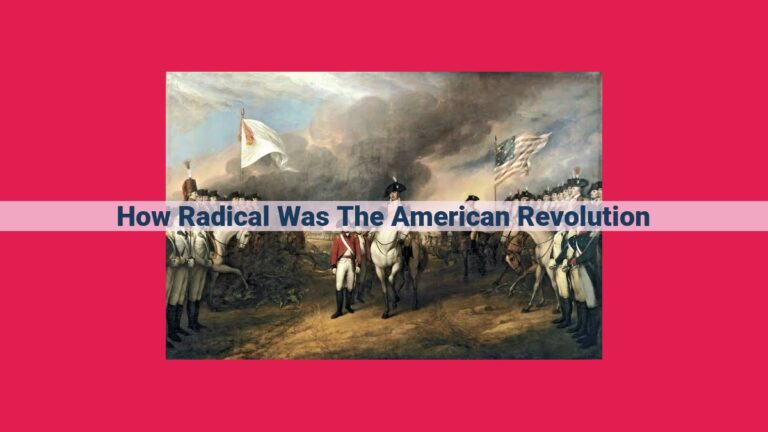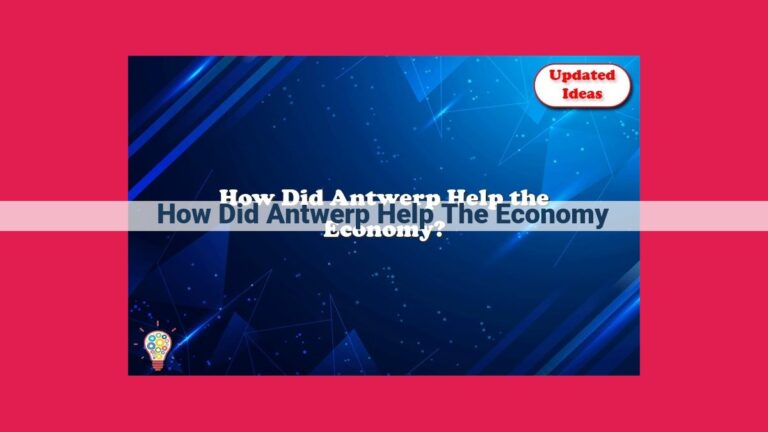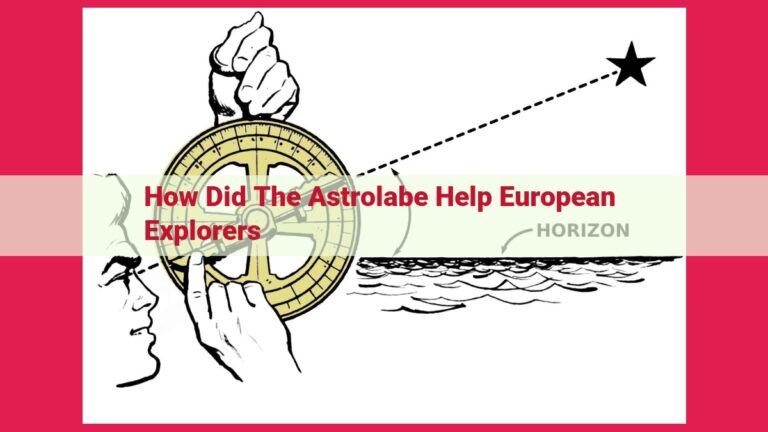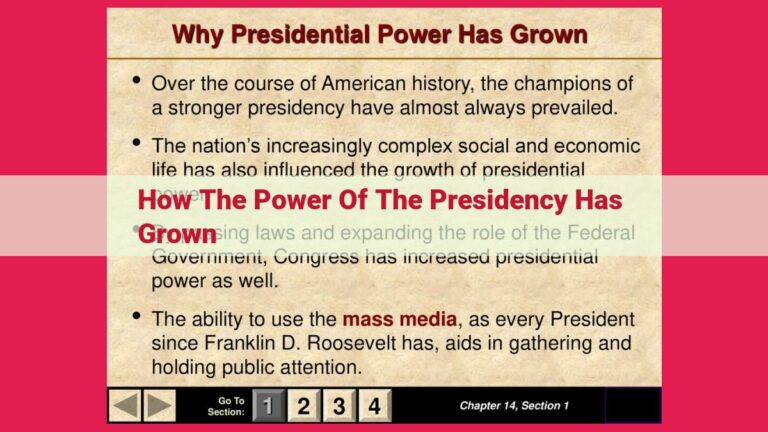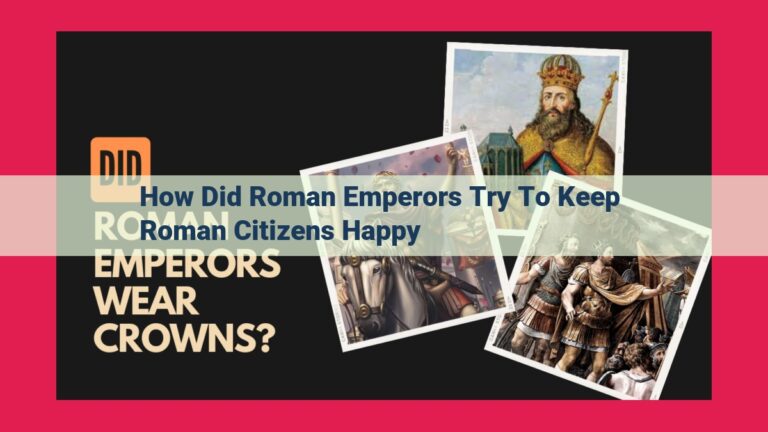Jean-Jacques Rousseau: The Architect Of Modern Governance And Social Contract Theory
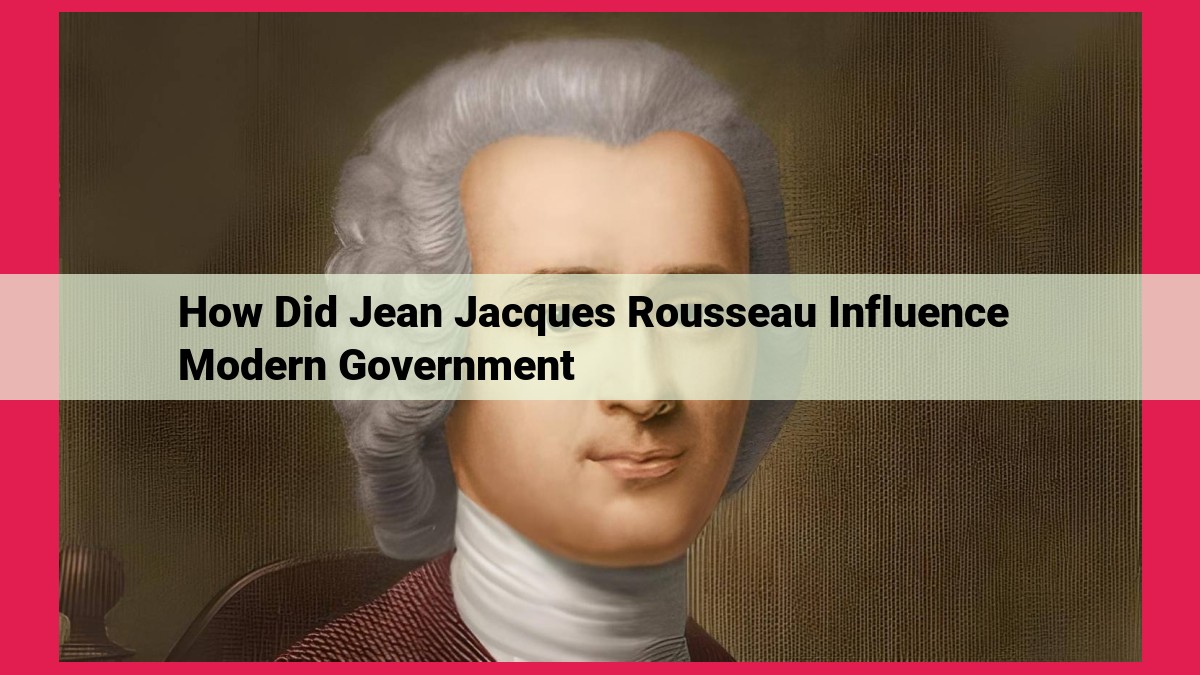
Jean-Jacques Rousseau’s profound ideas shaped modern governance. His Social Contract Theory emphasized natural rights, the consent of the governed, and separation of powers. The concept of the General Will highlighted collective good and public reason. Popular Sovereignty established the role of majority rule and self-government. Rousseau’s emphasis on education and the dangers of inequality resonated deeply, impacting political systems and sparking ongoing debates on social justice.
Jean-Jacques Rousseau: The Architect of Modern Government
Once upon a time, in the annals of political philosophy, a visionary named Jean-Jacques Rousseau emerged. His profound insights into the nature of human society and government laid the cornerstone for the principles that shape modern governance today.
Rousseau’s revolutionary ideas ignited a flame that illuminated the path towards a more just and equitable political landscape. His social contract theory established the founding principle that governments derive their power from the consent of the governed, a concept that underpins modern democratic institutions.
The general will, a collective expression of the common good, became the guiding star for Rousseau’s vision of a harmonious society. He believed that when the interests of the general will and the individual will converged, true liberty could flourish.
This idea gave birth to the concept of popular sovereignty, a doctrine that empowers the people as the ultimate source of authority in governance. Majority rule, self-government, and representative institutions became the pillars upon which Rousseau envisioned a society where every voice mattered.
The Social Contract Theory:
- Definition and historical roots of social contract theory.
- Key elements: natural rights, consent of the governed, separation of powers.
The Social Contract Theory: The Foundation of Modern Governance
Jean-Jacques Rousseau, an influential philosopher of the 18th century, laid the groundwork for the modern understanding of government with his seminal work on the social contract. This theory posits that political authority originates from a voluntary agreement among free and equal individuals, who surrender some of their rights to a collective body for the common good.
Historical Roots and Key Elements
The concept of the social contract has its roots in ancient philosophy, but it was Rousseau who developed it into a comprehensive political theory. He argued that humans are inherently independent and free, but in order to protect their natural rights, they must enter into a social contract. This contract entails the consent of the governed, a separation of powers, and the establishment of a collective will.
Consent of the Governed
Rousseau believed that legitimate authority can only be derived from the consent of those being governed. Individuals voluntarily surrender some of their freedoms to a collective body, such as a government, in exchange for protection and security. This concept is enshrined in many modern constitutions, which guarantee citizens the right to participate in their own governance through elections and other forms of political engagement.
Separation of Powers
To prevent the concentration of power in the hands of any one person or group, Rousseau advocated for the separation of powers. This means dividing the government into different branches, each with its own responsibilities and checks and balances. By dispersing power, the social contract theory aims to protect against tyranny and ensure that decisions are made in the best interests of the governed.
The General Will: A Cornerstone of Rousseau’s Political Thought
Introduction
Jean-Jacques Rousseau, the influential 18th-century philosopher, posited the concept of the general will as a fundamental principle of legitimate governance. This idea has profoundly shaped modern political thought and continues to resonate in contemporary discussions about democracy and societal organization.
The Concept of the General Will
The general will is not simply the sum of individual preferences but rather a distinct, collective force that emerges from the shared interests and values of a community. It represents the common good, which transcends the narrow self-interest of any particular group or individual. Rousseau emphasized the importance of public reason and deliberation in determining the general will, ensuring that decisions are based on reasoned consensus rather than personal bias.
Collective Good and Shared Values
The general will prioritizes the collective good over individual desires. It seeks to promote the well-being of the entire community, ensuring that the interests of all are considered. Rousseau recognized the importance of shared societal values in fostering a sense of unity and common purpose, which in turn strengthens the general will.
Implications for Modern Governance
The concept of the general will has significant implications for modern governance. It underscores the need for representative institutions that can effectively channel the public will into policy decisions. Majority rule is an essential component of democracy, but it must be balanced with respect for the rights of minorities.
Conclusion
Rousseau’s general will remains a powerful and enduring principle of political thought. It reminds us of the importance of collective action and shared societal values in building just and equitable societies. By fostering informed citizenship and encouraging public discourse that prioritizes the general good, we can strengthen the foundations of modern governance and create a more inclusive and sustainable future.
Popular Sovereignty: The Bedrock of Modern Governance
In the annals of political thought, Jean-Jacques Rousseau stands as a towering figure, his ideas deeply ingrained in the fabric of modern government. Central to his philosophy is the concept of popular sovereignty, a cornerstone of democratic societies.
Definition and Implications
Popular sovereignty implies that ultimate political authority resides with the people. Citizens are the source of all legitimate power, and the government is merely their representative, bound by their will. This concept diametrically opposes traditional notions of divine right or monarchical rule, emphasizing the inherent power of the governed.
Role of Majority Rule
In a democracy, the majority holds sway over decision-making. While not always infallible, majority rule is a fundamental mechanism for expressing the collective will and preventing tyranny of the minority. However, it is essential to balance majority rule with the protection of individual rights and minority voices.
Self-Government and Representative Institutions
Popular sovereignty empowers citizens to govern themselves. This can manifest through direct participation in political processes, such as referendums or citizen assemblies. However, in larger societies, it often requires the establishment of representative institutions, such as parliaments or elected officials, who are entrusted to act on the people’s behalf.
Challenges and Responsibilities
While popular sovereignty is a powerful tool for empowering citizens, it also comes with responsibilities. An informed and engaged citizenry is crucial for making sound collective decisions. Education and critical thinking are therefore paramount in promoting a healthy democratic culture.
Contemporary Relevance
In the modern era, popular sovereignty remains a vital principle. It is a safeguard against authoritarianism and a foundation for inclusive and responsive governance. By ensuring that political power is vested in the people, we can foster societies where citizens feel empowered and have a meaningful say in shaping their own destinies.
The Paramount Importance of Education in Rousseau’s Philosophy
In the tapestry of Jean-Jacques Rousseau’s political thought, education played an indispensable role. Rousseau believed that an enlightened and virtuous citizenry was the cornerstone of a just and stable society.
Education for Enlightenment:
Rousseau recognized that education was the key to unlocking the power of reason and critical thinking. He believed that by fostering a love of knowledge and a thirst for understanding, citizens could break free from the shackles of ignorance and superstition. An enlightened populace, capable of discerning truth from falsehood, was essential for ensuring that the general will of society prevailed.
Education for Civic Virtue:
For Rousseau, education extended beyond intellectual development to moral and civic formation. He argued that education should instill in citizens a deep sense of duty, patriotism, and concern for the common good. Through education, individuals could learn to value cooperation, sacrifice, and the rule of law.
Education as a Catalyst for Social Transformation:
Rousseau believed that education had the potential to transform society. By empowering citizens with knowledge and civic virtue, it could break the cycle of inequality, injustice, and oppression. Education could promote social mobility, civic participation, and a more just and equitable distribution of power.
In conclusion, Rousseau’s emphasis on education was central to his political philosophy. He saw education as a means to foster enlightenment, cultivate civic virtue, and ultimately create a society in which all individuals could flourish. His ideas continue to inspire educators and political thinkers today, reminding us of the profound transformative power of education.
The Dangers of Inequality: Rousseau’s Warnings for Modern Governance
Jean-Jacques Rousseau, the renowned philosopher of the Enlightenment, passionately warned about the perils of economic inequality in his seminal work, “The Social Contract.” His astute observations continue to resonate profoundly in contemporary political systems, offering a cautionary tale for addressing disparities and fostering societal cohesion.
Social Conflict and Division:
Rousseau recognized the intrinsic link between economic inequality and social unrest. When wealth and resources are unjustly distributed, resentment and animosity brew among the disenfranchised masses. This disparity can fuel social conflict, dividing communities into opposing factions. As inequality widens, the gap between the haves and have-nots grows more pronounced, creating a breeding ground for social unrest.
Political Instability and Corruption:
Economic inequality also poses a grave threat to political stability. The wealthy and privileged often wield undue influence over the political process, as their vast resources allow them to manipulate elections and shape policies in their favor. This undermines the principle of equal representation, eroding the foundation of democratic governance. Corruption and self-serving practices flourish, further weakening the trust of citizens in their government.
Erosion of Societal Cohesion:
When society is deeply divided by economic disparities, the sense of community and shared purpose dissipates. Individuals become increasingly isolated and self-absorbed, as their primary focus shifts towards acquiring material wealth. The erosion of societal cohesion weakens the bonds that hold communities together, making them vulnerable to external threats or internal collapse.
Call to Action:
Rousseau’s foreboding warnings about the dangers of inequality serve as a clarion call for contemporary society to address these issues with urgency. We must promote policies that reduce economic disparities, ensure equal access to education and opportunity, and strengthen the social safety net. By fostering a more equitable distribution of wealth and resources, we can safeguard the stability of our political systems, promote social cohesion, and create a society where all citizens have the chance to thrive.
